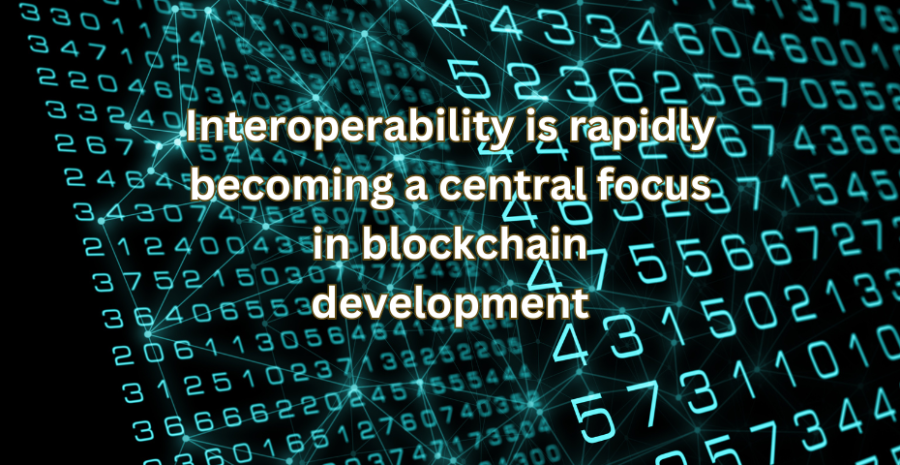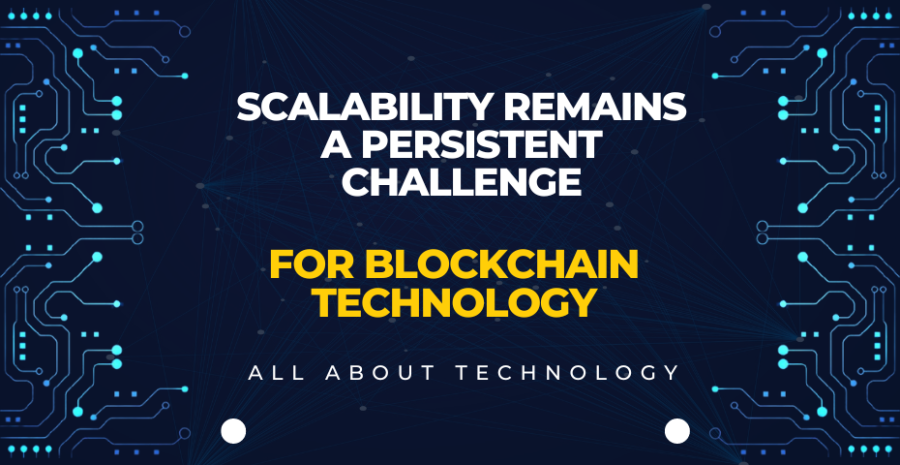
Exploring Future Trends and Developments in Blockchain Technology

1:The evolution of blockchain technology
As we journey further into the digital age, the evolution of blockchain technology continues to shape our understanding of decentralized systems and digital transactions. Looking ahead, several emerging trends and developments are poised to redefine the landscape of blockchain, offering exciting opportunities and challenges.
Blockchain technology has evolved from its inception as the underlying technology for Bitcoin to become a versatile framework with diverse applications. Initially focused on peer-to-peer transactions and digital currencies, blockchain has expanded to encompass smart contracts and decentralized applications (DApps). The introduction of Ethereum in 2015 revolutionized blockchain by enabling the development of programmable contracts and tokenization. Over time, scalability challenges led to the exploration of alternative consensus mechanisms and layer-2 solutions to improve transaction throughput and efficiency.
Interoperability between different blockchain networks has emerged as a key focus area, allowing for seamless communication and data exchange. Additionally, advancements in privacy-enhancing technologies have enhanced confidentiality while preserving the immutability and transparency of blockchain data. Overall, the evolution of blockchain technology continues to be driven by innovation, scalability, and the quest for broader adoption across industries.
2:The rise of decentralized finance (DeFi) platforms.
%20platforms_.png)
One prominent trend on the horizon is the rise of decentralized finance (DeFi) platforms. DeFi protocols leverage blockchain technology to offer traditional financial services, such as lending, borrowing, and trading, in a decentralized manner. This trend is likely to democratize access to financial services globally and unlock new avenues for innovation in the finance sector.
The rise of decentralized finance (DeFi) platforms marks a significant shift in the traditional financial landscape. DeFi protocols leverage blockchain technology to offer a wide range of financial services in a decentralized manner. These platforms enable users to access lending, borrowing, trading, and yield farming without the need for intermediaries like banks or brokers. The transparency and security provided by blockchain ensure trustless transactions and eliminate counterparty risk.
DeFi's open-source nature fosters innovation, allowing developers to create new financial products and services rapidly. As DeFi gains traction, it democratizes access to financial opportunities globally, empowering individuals who were previously underserved by traditional banking systems. Despite regulatory challenges and occasional security concerns, the DeFi ecosystem continues to expand, attracting investment and reshaping the future of finance.
3:The integration of blockchain with the Internet of Things (IoT).
.png)
Another key development is the integration of blockchain with the Internet of Things (IoT). By combining blockchain's security and transparency with IoT devices' connectivity, businesses can create more efficient and secure systems for managing and exchanging data. This fusion has the potential to revolutionize industries like supply chain management, healthcare, and smart cities.
The integration of blockchain with the Internet of Things (IoT) represents a pivotal development in the digital landscape. By merging blockchain's security and transparency with IoT devices' connectivity, businesses can create more efficient and secure systems for managing and exchanging data. This fusion enhances the integrity of IoT data by ensuring tamper-proof records and enabling secure, peer-to-peer transactions between devices. Industries like supply chain management, healthcare, and smart cities stand to benefit significantly from this synergy, unlocking new levels of efficiency and transparency.
With blockchain-enabled IoT solutions, organizations can streamline operations, reduce costs, and mitigate risks associated with data manipulation or unauthorized access. As this integration matures, it promises to revolutionize how devices interact and communicate, laying the foundation for a more interconnected and data-driven future.
4:Interoperability is rapidly becoming a central focus in blockchain development

Interoperability is also emerging as a critical focus area for blockchain development. As the number of blockchain networks grows, there is a growing need for seamless communication and compatibility between different platforms. Projects aiming to bridge this gap and facilitate interoperability are likely to gain traction in the coming years.
Interoperability is rapidly becoming a central focus in blockchain development, addressing the need for seamless communication between different blockchain networks. Projects aimed at bridging this gap facilitate the exchange of assets, data, and value across disparate platforms. This trend is crucial for overcoming siloed ecosystems and unlocking the full potential of blockchain technology.
Interoperability solutions, such as cross-chain communication protocols and interoperability bridges, are gaining traction as the demand for interconnected blockchain networks grows. By promoting interoperability, blockchain development fosters collaboration, innovation, and broader adoption across industries. As interoperability matures, it paves the way for a more cohesive and interconnected blockchain ecosystem, enabling users to seamlessly navigate between different networks and applications.
5:Scalability remains a persistent challenge for blockchain technology.

However, several scaling solutions, such as sharding, layer-2 protocols, and sidechains, are being actively researched and implemented to address this issue. These developments are crucial for enabling blockchain networks to handle a higher volume of transactions without compromising on efficiency or security.
Scalability poses an enduring challenge for blockchain technology, hindering its widespread adoption and usability in high-throughput environments. As transaction volumes increase, blockchain networks often struggle to process transactions efficiently, leading to delays and congestion. Various scaling solutions, including sharding, layer-2 protocols, and sidechains, are being explored to address this issue.
However, implementing these solutions effectively while maintaining security and decentralization remains a complex task. Scalability improvements are crucial for blockchain to fulfill its potential as a global infrastructure for decentralized applications and transactions. Overcoming scalability challenges will require ongoing research, innovation, and collaboration within the blockchain community. Despite the hurdles, progress in scalability solutions offers hope for a more scalable and efficient blockchain ecosystem in the future.
6:Privacy-enhancing technologies are gaining prominence in the blockchain space

With concerns around data privacy and confidentiality becoming increasingly significant, solutions like zero-knowledge proofs, homomorphic encryption, and privacy-focused blockchains are being developed to safeguard user data while preserving the benefits of transparency and immutability.
Privacy-enhancing technologies are gaining prominence in the blockchain space, addressing concerns surrounding data privacy and confidentiality. Solutions like zero-knowledge proofs, homomorphic encryption, and privacy-focused blockchains offer users greater control over their data while preserving the benefits of blockchain's transparency and immutability. These technologies enable users to transact and interact on blockchain networks with enhanced privacy protections.
As privacy becomes a top priority for users and regulators alike, the demand for privacy-enhancing technologies continues to grow. Integrating these solutions into blockchain platforms enhances trust and security, paving the way for broader adoption across industries. Privacy-focused initiatives are reshaping the narrative around blockchain, emphasizing the importance of balancing transparency with individual privacy rights.
7:The convergence of blockchain with artificial intelligence (AI)
.png)
AI algorithms can analyze vast amounts of blockchain data to extract valuable insights, detect patterns, and optimize processes. This synergy between blockchain and AI has the potential to enhance decision-making, automate tasks, and drive innovation across various industries.
The convergence of blockchain with artificial intelligence (AI) is a captivating trend reshaping both industries. AI algorithms can analyze vast amounts of blockchain data, unlocking valuable insights and enhancing decision-making processes. Blockchain, in turn, provides a secure and transparent infrastructure for AI systems to operate, ensuring data integrity and accountability. This synergy enables innovative applications across various sectors, including finance, healthcare, and supply chain management.
As AI continues to evolve, its integration with blockchain promises to drive efficiency, automation, and predictive analytics to unprecedented levels. Collaborations between blockchain and AI experts are accelerating the development of advanced solutions, fueling further growth and innovation in both fields. Watching this convergence unfold offers a glimpse into the transformative potential of combining two powerful technologies.
8:Regulatory developments will continue to shape the trajectory of blockchain technology.

Governments around the world are increasingly recognizing the importance of regulating blockchain and cryptocurrencies to ensure consumer protection, financial stability, and compliance with existing laws. Striking the right balance between innovation and regulation will be crucial for fostering the responsible growth of the blockchain ecosystem.
Regulatory developments wield significant influence over the trajectory of blockchain technology, impacting its adoption and evolution. Governments worldwide are increasingly recognizing the importance of regulating blockchain and cryptocurrencies to ensure consumer protection, financial stability, and compliance with existing laws. Striking a balance between fostering innovation and addressing regulatory concerns remains a delicate challenge.
Clear and coherent regulatory frameworks can provide certainty and confidence to businesses and investors, driving mainstream adoption of blockchain technology. Regulatory clarity also facilitates responsible innovation, encouraging compliance with legal requirements and industry standards. As blockchain matures, regulatory developments will play a pivotal role in shaping its integration into existing legal and financial systems, paving the way for broader acceptance and utilization. Monitoring these regulatory shifts offers valuable insights into the future direction of blockchain technology.
9:Tokenization of assets is poised to revolutionize traditional finance and investment models.

By representing real-world assets as digital tokens on a blockchain, fractional ownership, increased liquidity, and 24/7 trading can be facilitated. This trend has the potential to democratize access to investment opportunities and unlock previously illiquid assets.
Tokenization of assets represents a seismic shift in traditional finance and investment paradigms. By representing real-world assets as digital tokens on a blockchain, tokenization offers fractional ownership, increased liquidity, and 24/7 trading capabilities. This innovation democratizes access to investment opportunities, allowing for broader participation and enhanced market efficiency.
Tokenization has the potential to unlock previously illiquid assets, such as real estate and fine art, making them more accessible to a global audience of investors. As the tokenization ecosystem matures, it is reshaping how assets are managed, traded, and financed, paving the way for a more inclusive and dynamic financial landscape. Keeping pace with this transformative trend offers the opportunity to capitalize on new investment avenues and diversification strategies while driving innovation in the financial industry.
10:In conclusion.
The future of blockchain technology is bright and full of promise.
With ongoing advancements in scalability, interoperability, privacy, and regulatory clarity, blockchain is set to redefine numerous industries and reshape the way we interact with digital systems. By staying informed and embracing innovation, we can harness the transformative power of blockchain to build a more efficient, transparent, and inclusive world.
As the technology matures, it will continue to democratize access to financial services, enhance data security and transparency, and drive innovation across various sectors. Embracing blockchain's potential requires collaboration, creativity, and a commitment to overcoming existing challenges.
The journey ahead may present hurdles, but the potential rewards are boundless, offering opportunities to reshape economies, societies, and the very fabric of how we exchange value and information.
(5).jpg)
About: Andries vanTonder
Over 40 years selfemployed
He is a Serial Entrepreneur, an Enthusiastic supporter of Blockchain Technology and a Cryptocurrency Investor
Find me: Markethive Profile Page | My Twitter Account | My Instagram Acount | and my Facebook Profile.
